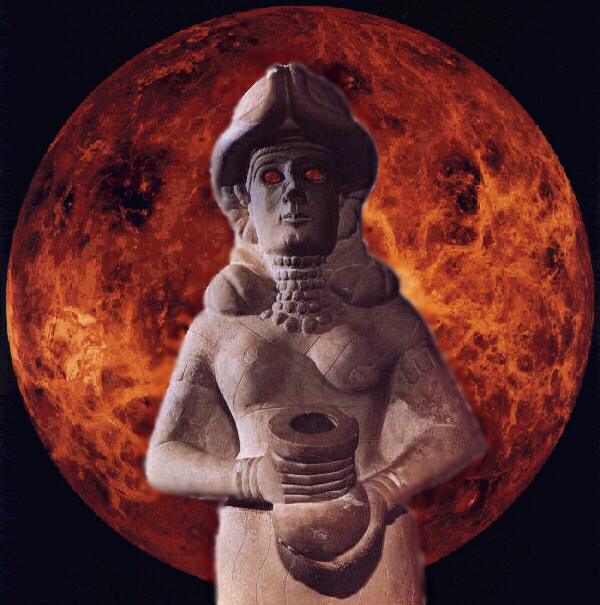|

Article about Ischtar (Geschtinanna, Nins-Anna)
By Roibin
(Inanna (sumerian name), Astarte (kanaanäic name),
Arinna (hethitic sun goddess), Tanit (karthargic name) Anna = Goddess
The origin of this babylonian-assyrian main goddess was
a semitian vegetation- and moon goddess with lower influence, but when these
tribes arrived at the land of the sumerian kingdom, her cult reached the
sumerian capital Uruk. The sumerian people identified Ischatar easily with
their own goddess Inanna. After some time Ischatar became in the second millenium
the highest and widest worshipped goddess of the Babylonians.
Ischtars reign was not depending on a male consort, she
reigned absolute on her own and united in her all the aspects of femininity.
Her position in the Babylonian pantheon was the highest, but her family relations
are a bit confusing: Ischtar was daughter of the moon god Nanna or of the
sky god Anu, later she was also his wife.
She was also the sister of the sun god Utu/Marduk and
the underworld goddess Ereschkigal.
Her astral appearance was seen in the planet Venus.
She appeared in person wearing a zodiac belt together
with hunting dogs like Diana or riding on a lion, her holy animal.
She was the Queen of heaven (Scharrat Schame) and the
mother, who had born the world and still remained a virgin.
Her consort or husband was Tammuz ( sumeric: Dumuzi),
river god of Euphrates and Tigris, who was meanwhile also her son and her
brother. When the world began, Tammuz (faithful son) came together with Ischtar
in the world. She bore him, she made love with him and she remained a virgin.
When Tammuz died in the late summer and all vegetation died with him, Ischtar
was looking for him all over the world. She finally found him in the underworld
and brought him back to life (see Celtic believe). Tammuz was reborn and
the vegetation could flourish again.
For the assyrian people she was mainly a war goddess (Lioness
of the battle), but also the love and the sexual life belonged to her realm
of influence . Moreover she was the Goddess of justice and healing.
Bigger than the mountains am I,
The Empress of the gods am I
The Queen of heaven am I
The earth's mistress am I.
(translation of an old Babylonian text) |